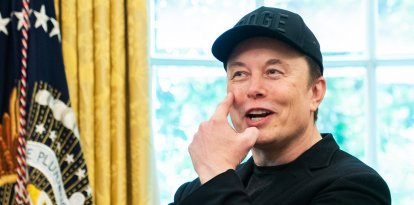Trump unilaterally increases tariff pressure with tariffs of up to 70%
Washington will begin sending tariff notices to several trading partners and expects to complete the process by July 9.

U.S. President Donald Trump
President Donald Trump announced that the United States is about to send formal notifications to several trading partners, imposing new unilateral tariffs of up to 70%.
As he explained, the letters could begin to be sent as early as this Friday, and all are expected to be delivered by July 9, a date that represents the end of the 90-day pause his administration gave itself to review the so-called" reciprocal" tariffs.
"We’re going to start sending letters out to various countries starting tomorrow," the president said. "We’ll probably have 10 or 12 go out tomorrow, and over the next few days, I think by the 9th, they’ll be fully covered."
Trump explained that the notices will include tariff ranges between 10% and 70%, exceeding even the levels the administration had previously imposed. The last time similar measures were applied, the maximum imposed outside the Chinese case was 50%.
The new tariffs would take effect on August 1.
Signs of market stress
Although financial markets in the United States were closed for the July 4 holiday, the news triggered movements in international markets. In London, S&P 500 and Nasdaq-100 futures fell less than 1% after posting records before the holiday, boosted by a positive labor report.
South Korea's Kospi index fell 2%, reflecting broader regional concerns, while Japan's Nikkei showed a slight rise of 0.1%. In the currency markets, the dollar weakened against the Swiss franc and the Japanese yen.

Politics
China lashes out at new US-Vietnam trade deal because it 'affects its interests'
Sabrina Martin
A negotiating move
Analysts interpret the announcement that tariffs will take effect in August, rather than immediately after July 9, as an attempt to create space for accelerating bilateral negotiations. Inga Fechner, an economist at ING Bank, noted that this additional leeway could be designed to press deals with key countries such as Japan, South Korea and the European Union, while avoiding an immediate backlash.
So far, the Trump administration has clinched deals with the United Kingdom and Vietnam and maintains a partial truce with China.

World
Trump threatens new tariffs on Japan over resistance to more U.S. goods
Emmanuel Alejandro Rondón

























